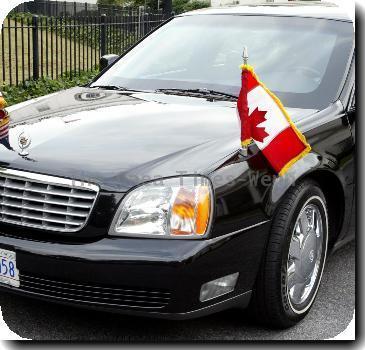Southern Democrats who could be particularly vulnerable in 2010 antsy after Virginia landslide
By Ben Evans, APThursday, November 5, 2009
Southern Dems cast wary eye at election results
WASHINGTON — Southern Democrats who watched the trouncing of their party’s gubernatorial nominee in Virginia this week are starting to worry that a rising anti-Democratic tide in the South may reverse their hard-fought gains from the last two national elections.
“They say people won’t walk a mile to vote for you but they’ll walk 100 miles to vote against you,” said Rep. Parker Griffith, a freshman Democrat who won his Alabama seat with just 52 percent of the vote last year. “Well, people walked 100 miles Tuesday.”
If the Virginia race signals a growing movement against the party’s agenda, Democrats know it will be particularly fierce below the Mason-Dixon line next year. Even the perception of such a trend is enough to seriously damage the party’s ability to recruit top candidates in the region. On Capitol Hill, it could convince moderates to distance themselves from the party on key votes, such as health care.
“Obviously you pay attention to it, you’d be a fool not to,” said Rep. Bob Etheridge, a North Carolina Democrat who said he will make a long-awaited decision by this weekend on whether to challenge Republican Sen. Richard Burr.
Democrats made significant inroads in 2006 and 2008, winning House seats even in states like Mississippi and Alabama that had long been in Republican hands. President Barack Obama was the first Democrat to win Virginia since 1964, and he also won North Carolina. Democrats also picked up Senate seats in both states that could prove pivotal to their agenda.
But on Tuesday in Virginia, Republican Bob McDonnell won by 18 percentage points, three times Obama’s margin of a year ago, and three freshman Democrats saw their districts vote overwhelmingly for the GOP candidate. Those numbers caught the attention of Democrats in Deep Southern states that didn’t support Obama.
Democrats are particularly vulnerable in the South, where Republicans still dominate politically despite the recent Democratic gains. Nearly half of the 20 Democratic seats Republicans think they can win in 2010 are in the South, and a number of veteran House Democrats not on the GOP target list could quickly become vulnerable in a conservative wave.
The favorable climate of 2006 and 2008 also emboldened many promising Democrats to enter Senate and gubernatorial races next year, and those candidates now are worried they may be facing a different electoral mood.
Rep. Artur Davis of Alabama, a rising Democratic star in Washington, is giving up his House seat in a bid to become his state’s first black governor. Democrats talked Rep. Charlie Melancon into trying to unseat Republican Sen. David Vitter in Louisiana, and Georgia Democrats convinced former Gov. Roy Barnes to take another shot at the office, giving them a proven commodity in a heavily conservative state.
South Carolina Democrats are hopeful they can take advantage of Gov. Mark Sanford’s out-of-state extramarital affair to win the governor’s mansion, and in Florida, for the first time since the late 1800s, every statewide position on the ballot is an open seat, including Senate and gubernatorial races.
Not all Southern Democrats are worried by the Virginia results.
Some insisted the race was decided on state issues and had nothing to do with what’s happening in Washington, while several said it suggested Democrats should act more boldly.
“I saw a depressed Democratic base … What that told me was that Democrats have to deliver for their base,” said Rep. Gerry Connolly, one of four Virginia Democrats targeted by the National Republican Congressional Committee. “What I conclude from last night is that we gotta pass health care.”
Others said it was a clear signal that Democrats should scale back and slow down.
“I think it’s a warning,” said Griffith. “I think we need to listen.”
There’s near unanimous agreement that the economy is paramount, and that if Democrats don’t do more to convince voters that they’re working to create jobs, the Virginia outcome could be replicated widely in 2010.
“It’s obvious that the voters are frustrated, and most of the time the frustration is taken out on the party in power,” said Steve Raby, a Democratic political consultant in Alabama who has conducted extensive polling there recently. “I don’t believe the frustration is specifically targeted at Democrats. I think it’s just targeted at incumbents.”
_____
Associated Press writer Brendan Farrington in Tallahassee, Fla., contributed to this report.
Tags: Alabama, Barack Obama, North America, Political Organizations, Political Parties, State Elections, United States, Virginia, Washington



